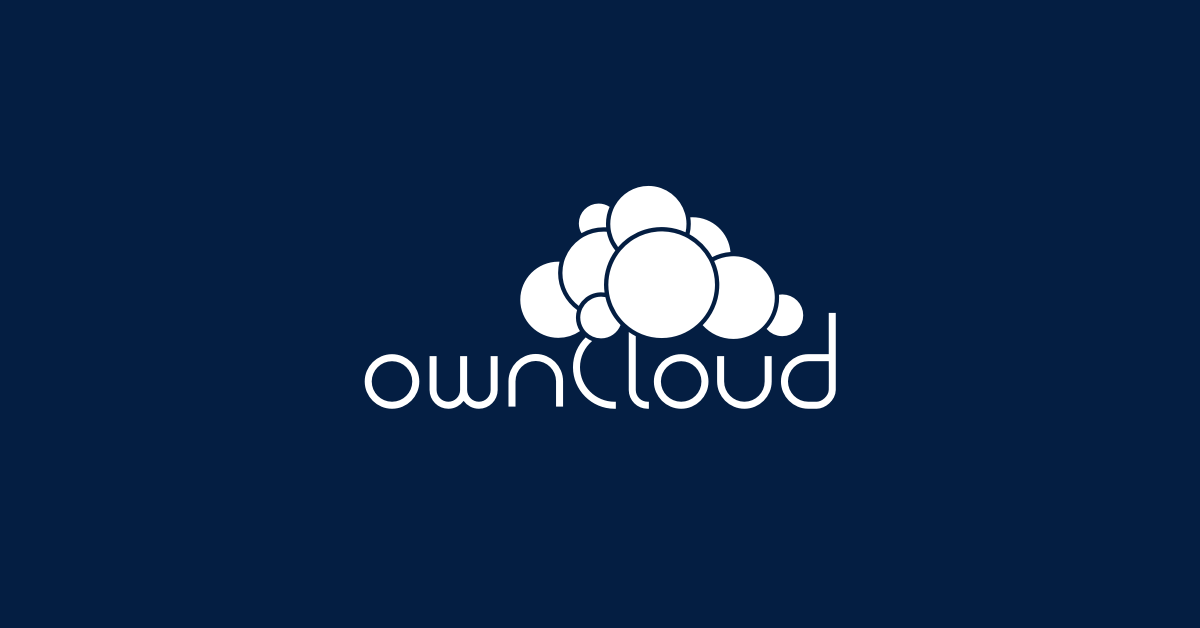The topic of self-hosted cloud software comes up often but I haven’t seen anyone mention owncloud infinite scale (the rewrite in Go).
I started my cloud experience with owncloud years ago. Then there was a schism and almost all the active devs left for the nextcloud fork.
I used nextcloud from it’s inception until last year but like many others it always felt brittle (easy to break something) and half baked (features always seemed to be at 75% of what you want).
As a result I decided to go with Seafile and stick to the Unix philosophy. Get an app that does one thing very well rather than a mega app that tries to do everything.
Seafile does this very well. Super fast, works with single sign on etc. No bloat etc.
Then just the other day I discovered that owncloud has a full rewrite. No php, no Apache etc. Check the github, multiple active devs with lots of activity over the last year etc. The project seems stronger than ever and aims to fix the primary issues of nextcloud/owncloud PHP. Also designed for cloud deployment so works well with docker, should be easy to configure via docker variables instead of config files mapped into the container etc.
Anyways, the point of this thread is:
- If you never heard of it like me then check it out
- If you have used it please post your experiences compared to NextCloud, Seafile etc.
What puts me off of Owncloud is the new ownership. I couldn’t care less if it’s written in the blood of Christ, if I have to worry about the rug getting pulled out from under me for self-hosting, it’s a no-go for me, Joe.
Nextcloud works well for me and has for years. The people that don’t like it can go use this, and we’ll see you back in a couple of years when it goes open-core or worse.
Ya it was bought by kiteworks which provides document management services for corps (which explains why that mention traceable file access in their features a lot).
That being said, they bought them in 2014 it seems and it’s been a decade nowCorrecting: they were bought very recently, they have been accepting corporate funding for more than a decade however. That’s not bad in and of itself.I have no issue with corporate funding. I have an issue when a company gets to make all the decisions. Lot of good software has gone to hell when the shareholders need profit now instead of seeing a long term vision.
We’ll see, but I’ve been around this rodeo enough to just avoid it from the start and take some pain now instead of putting in effort that’s going to be wasted later.
If it goes bad fork it. Just look at what is now the fossify apps
I mean… We already have a very well built fork.
Open source or bust
Nextcloud needs to port over some of the old OC Documentation. Their own docs make all kinds of references and it’s always something esoteric.
I find it really weird that something as simple as the basic functionality of nextcloud seemingly can’t be implemented in a stable and lightweight manner.
Nextcloud always seems one update away from self destruction and it prepares for that by hoarding all the resources it can get. It never feels fast or responsive. I just want a way to share files between my machines.
There are other solutions, I know, but they’re all terrible in their own way.
Exactly, Seafile is the best I’ve found so far but a clean re write of the basic sync features would be great.
Seafile for example has full text search locked behind a paywall even though tools like Elasticsearch could be integrated into it for free. Even the android app as filename search locked behind a paywall. You have to log into the website on your phone if you need to search.
Pathetic state of affairs.
You can get a free Seafile Pro license if you create an account with them. Limited to 3 users, iirc. That’s what I’ve been running and really using it to keep stuff on phone, desktop, and laptop reachable from any of the devices. I love it.
I have no problem supporting devs but locking what should be core features behind a paywall in unacceptable for me.
I agree. I’m this case it works out for me since I’m under the 3 user limit.
If you only need file syncing, there are better options than Nextcloud. But Nextcloud is the only real option if you want to create a full suite of replacements for office365 or google thanks to the large plugin ecosystem.
All I want is Nextcloud Files and Calendar in one place. If there’s something that can do that more performant and with a similarly nice gui i’d be all over it
That’s all I need too - currently using immich for photos but missing out on an calendar/to-do list option…
Everyone moved to NextCloud by now
I know, I did as well.
The point of the post is that there is a very active full rewrite of the whole thing trying to ditch all the tech debt that NextCloud inherited from the OG owncloud (php, Apache etc)
It isn’t perfect but it is better than everything else I tried. Also I’ve used it long enough to understand how to make it work
I run seafile, but holy shit do I regret looking at the source code.
Why is that?
There was something wonky with the mapping of OIDC attributes to user properties, so I decided to look at the seahub source and see if it would be easy to fix.
Turns out, the whole thing is held together with hope and spit. Literal beginner code.
Also looking through some of the issues and comments on github about no plans to implement basic features (file search on the android app) does not inspire confidence at all. One of the reasons I’m hoping the OwnCloud rewrite is good.
I personally like Nextcloud even though it is a pain
I personally will never use nextcloud, it is nice interface side but while I was researching the product I came across concerns with the security of the product. Those concerns have since then been fixed but the way they resolved the issue has made me lose all respect for them as a secure Cloud solution.
Basically when they first introduced encrypting folders, there was a bug in the encryption program, and the only thing that ever would be encrypted was The Parent Directory but any subfolder in that directory would proceed to not be encrypted. The issue with that is that unless you had server-side access to view the files you had no way of knowing that your files weren’t actually being encrypted.
All this is fine it’s a beta feature right? Except for when I read the GitHub issue on the report, they gaslit the reporter who reported the issue saying that despite the fact that it is advertised as feature on their stable branch, the feature was actually in beta status so therefore should not be used in a production environment, and then on top of , the feature was never removed from their features list, and proceeded to take another 3 months before anyone even started working on the issue report.
This might not seem like a big deal to a lot of people, but as someone who is paranoid over security features, the projects inaction over something as critical as that while trying to advertise themselves as being a business grade solution made me flee hardcore
That being said I fully agree with you out of the different Cloud platforms that I’ve had, nextCloud does seem to be the most refined and even has the ability to emulate an office suite which is really nice, I just can’t trust them, I just ended up using syncthing and took the hit on the feature set
Ugh. I know that feeling. That’s why I’ve blacklisted salt stack.
https://news.ycombinator.com/item?id=5993959
There’s a particularly toxic combination of ignorance, laziness, NIH and hubris that you need to make a mistake like that, and I want it nowhere near my servers.
If you own the hardware it isn’t a issue
Saying files are encrypted when it is not true is an issue, regardless of who owns the host box. Even for a small instance that is private family or friends.
Someone could simply modify Nextcloud to lie about encryption. If you don’t control the server there is no way to know.
It all depends on your threat model, I own my Hardware as well but I’m still not going to use a software that is shown to me that they don’t take security seriously but I’m also more paranoid than most
Yes, it is. If people are relying on files to be encrypted they may dispose of their disks differently. Or the NAS might be stolen.
Or an threat actor might just turn it off
I had a horrible experience with nextcloud on a pi. I have a great experience on a good server. It stores files. It does that very well for me. Clients work reliable.
Nextcloud apps are sometines good and sometimes not. It can do everything. One should let navidrome serve music and not nextcloud. Mealie is for recipes. Jellyfin for videos and immich for images. Paperless for documents.
Nextcloud is file storage, backup, syncing and maybe collab. That’s what I expect and that’s what I get.
What’s crazy is that I tried NC on my server, which is a HP Microserver G8 hosting 13 total services. And it ran like crap. Tried the standard and AIO versions. On a whim tried NextcloudPi on a Pi4 and it has been awesome! Web interface is still pretty sluggish but I use apps that sync to NC most of the time like:
- Quillpad for Google Keep type notes and checklists
- Floccus for bookmarks sync
- Deck for Kanban
- Gnome online accounts for desktop and laptop connection with documents
So far it’s been flawless. I doubt it would run well with more than a few users though.
I had NextCloud on a Ryzen 3600 with NVME zfs array. While faster that my previous Intel atom with HDD + SSD cache, Seafile blows it away in terms of speed and resiliency. It feels much more reliable with updates etc.
I use owncloud infinite scale and overall its rock solid. The downside is the lack of plugins. Nextcloud has been nothing but trouble for me and every update was a mess so I decided to try OCIS and for my need I was extremely satisfied.
Now, I admit, I’m not one to get carried by the drama in the FOSS sphere (still use Gitea) but I do agree there is an history to the separation of owncloud and nextcloud that can make some people uncomfortable. Having a choice is good I believe.
Now, I admit, I’m not one to get carried by the drama in the FOSS sphere (still use Gitea)
This is a bit of a “bell curve meme” situation. I’m extremely about the drama, and I’m back to gitea. The forgejo guys are good at branding, but I’m not seeing great project stewardship. I’ll take my chances with the commercial guys for now.
One of the first interaction I witnessed from the forgejo guys was this PR:
https://github.com/go-gitea/gitea/pull/27455/
The interaction and stubbornness of earl-warren felt like it was just that, provoked drama.
Thank your for providing first hand perspective. I’ll probably try to spin up a docker deployment for testing.
I don’t really plan to use many of the plugins since I think that was the down fall of NextCloud. Trying to do everything instead of doing it’s core job well.
I would have used Owncloud Infinite Scale but the fact you can’t use your own existing files makes it a complete non-starter for me. I don’t want my files locked behind Decomposed FS.
Unless I’ve read things wrong, which is entirely possible.
FYI there is an upcoming storage driver that can solve this issue
That’s good to hear. Looks like something worth revisiting once it’s been tested well.
deleted by creator
Is it Free Software? In the repo is a LICENSE file, saying it’s Apache licensed. But I also found an EULA saying it’s not Free Software…
That’s indeed confusing. The wording linked below suggests the eula is for packages distributed by owncloud. so to my understanding the source itself and any third party packages don’t need to care about it.
https://github.com/owncloud/ocis?tab=readme-ov-file#end-user-license-agreement
Apache isn’t a copyleft license. I guess they (and everyone) can just copy or compile it, make it a derivative work and say it’s now non-free and terms and conditions apply.
I mean the GitHub repo has a license file which says it’s Apache 2.0. And 3h) of the EULA says it doesn’t apply to open source components. So it kinda doesn’t apply to itself. I think you’re right, it’s Free Software after all and them saying “Some builds […]” means it’s the binaries distributed by them. IANAL and it kinda contradicts the Apache license which explicitly states I am allowed to redistribute copies both modified and not modified and both in object and source form. I’m not sure why they do it and if there are components missing in the GitHub repo.
I only read the beginning but it says you can use it for private deployments but can’t use it commercially. Seems reasonable. Any specific issues?
Hmm. I guess that works, too. I’m just a nerd and really like Free Software. Almost exclusively use it. My phone runs a custom ROM with just a few unfree apps and without Google services, all my computers run Linux. Even the internet router does, and my IoT smart sockets run Tasmota or ESPHome. I like the 4 freedoms and the culture behind it. I participate and regularly contribute. All of that is mostly personal preference. I guess I could as well live comfortably with using Google Drive, but I choose not to. Source-available software would allow me to look at the code, something proprietary software doesn’t allow. But that’s pretty much it. I often can’t remix and share it as I like. I don’t have the freedom to decide to use it as it pleases me. And depending on the exact license, I can’t even invite my friends and family to use the services I set up…
It’s just the line I draw. And with the software I really rely on and use daily, I’m pretty strict. Either it provides me with the Four Essential Freedoms of Free Software as lined out by RMS in the eighties, or I don’t volunteer to use it. I have no issues though with other people making different choices.
Acronyms, initialisms, abbreviations, contractions, and other phrases which expand to something larger, that I’ve seen in this thread:
Fewer Letters More Letters IoT Internet of Things for device controllers NAS Network-Attached Storage SSD Solid State Drive mass storage
3 acronyms in this thread; the most compressed thread commented on today has 23 acronyms.
[Thread #841 for this sub, first seen 1st Jul 2024, 16:05] [FAQ] [Full list] [Contact] [Source code]
Maybe the NextCloud guys will follow… oh wait that would just be yet another perpetually half-finished NC thing.
Seafile is not FOSS, as I understand it. But I tried it anyway, since I also found Nextcloud bloated.
In the end I went back to the purest strategy of all: peer-to-peer. My files are synced between devices over the local network using
ssh,rsyncandunisonand never touch an internet server.@JubilantJaguar I do similar but with syncthing. It’s treated me very well so far.
I wanted to spin up OCIS but for some reason ran in to difficulties with the Docker container. I forget what the issues were, but I already had a solid Nextcloud instance running so I didn’t dig very hard. Would like to revisit it some day.
However, since then Owncloud has been bought out, causing some worry.
Edit- Merger info
Did not know this. Thanks!
Looks like Kiteworks invested in OwnCloud in 2014 and they still seems to be going strong with the OSS development which is a good sign.
This probably explains why there are so many active devs on the project and how they got a full rewrite into version 4 relatively quickly.
Already seems to have more features than Seafile.
2023, I remember the announcement last year. Not sure where you’re getting 2014 from, that was even before NC split off.
Oh never mind, I saw this finding announcement for 6M and assumed it was the same company. Looks like they have many corporate investors…doesn’t inspire too much confidence.
Although they are still using the Apache 2 license and you can see they are very active in github. It does look like it’s a good FOSS project from the surface.
I’ve been running OC10 for a while now and have hit a few bumps here and there. I didn’t realize OCIS is available as a self hosted thing. Since first reading this thread a while ago I’ve been working on getting it running. Using docker I manage to get it to open to a blank blue page where I’m supposed to be able to log in but the form doesn’t show up no matter what browser I use. I may look into it again in the future…
















